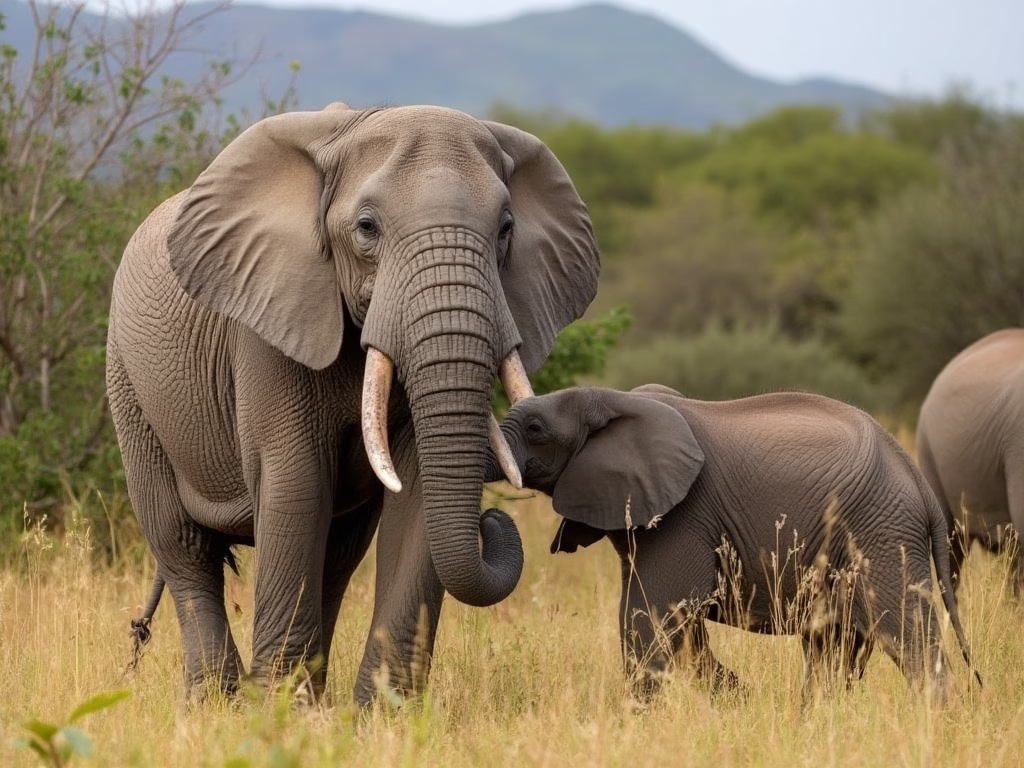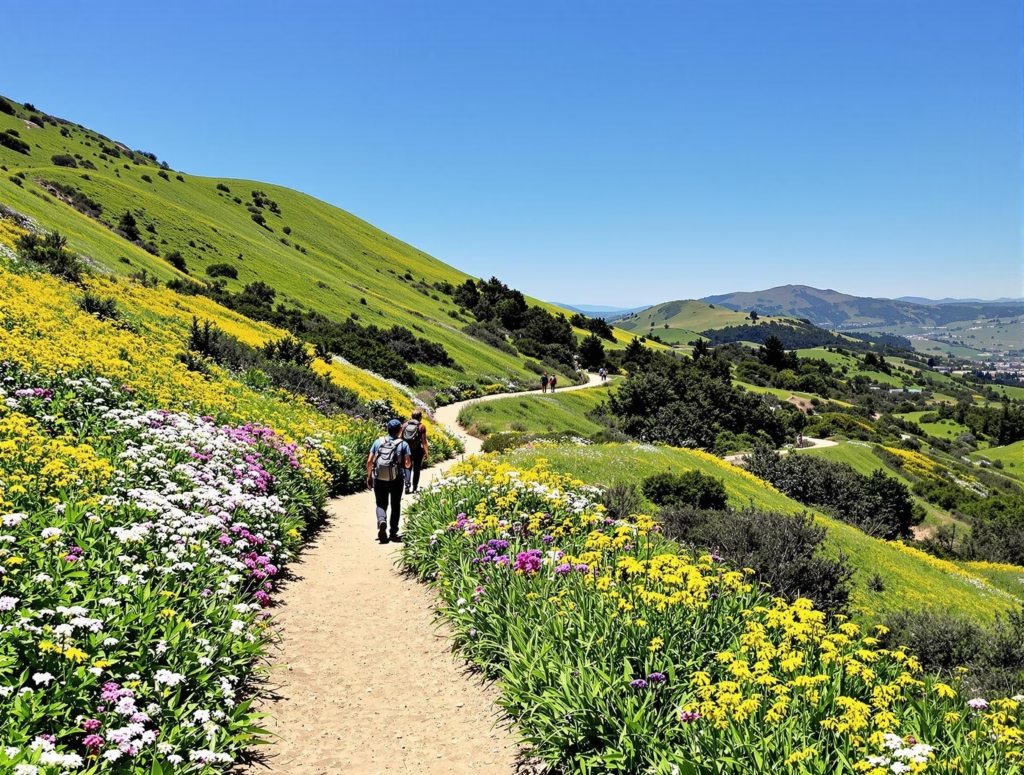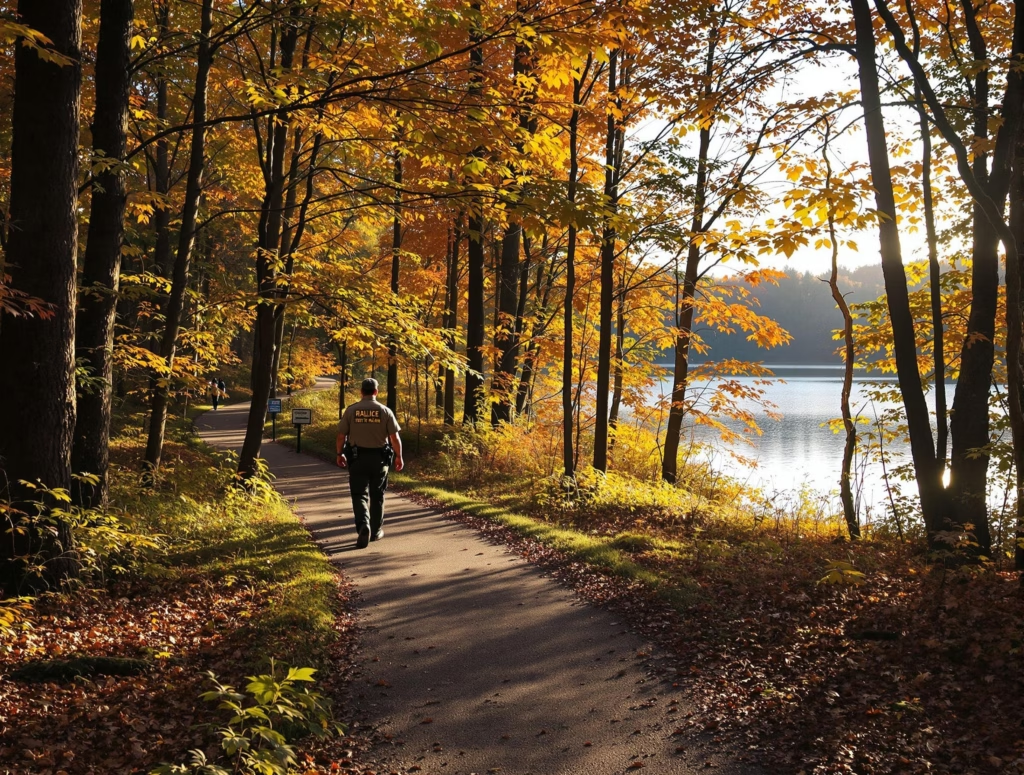Addo Elephant National Park, situated in South Africa’s Eastern Cape Province, has evolved from a sanctuary for threatened elephants to a comprehensive biodiversity conservation area. Spanning 180,000 hectares, the park now protects a diverse array of species and ecosystems, including the world’s first ‘Big Seven’ conservation zone.
Key Takeaways:
- Addo is home to the world’s first ‘Big Seven’ conservation area
- The park represents five of South Africa’s nine terrestrial biomes
- Over 600 elephants thrive in one of the densest populations globally
- A 7,414-hectare Marine Protected Area safeguards crucial marine life
- The park significantly boosts the local economy through tourism and partnerships
A Sanctuary for the “Big Seven” and Beyond
Addo Elephant National Park has transformed into a remarkable conservation success story. Originally established to protect a dwindling elephant population, it now encompasses a vast area that includes diverse ecosystems from semi-arid zones to coastal regions. The park’s unique feature is its status as the world’s first ‘Big Seven’ conservation area, protecting elephants, lions, rhinos, buffalos, leopards, southern right whales, and great white sharks.
The park’s landscape is a microcosm of South African biodiversity, representing five of the country’s nine terrestrial biomes: thicket, forests, fynbos, nama-karoo, and Indian Ocean coastal belt. This ecological diversity creates a haven for a wide range of species, making Addo a critical site for conservation efforts.
Elephant Conservation and Adaptation
At the heart of Addo’s conservation efforts are its elephants. The park boasts over 600 elephants, creating one of the densest elephant populations globally. These magnificent creatures have adapted to the semi-arid environment, developing unique characteristics such as smaller tusks – a result of historical hunting pressures.
The park’s commitment to elephant protection extends beyond simple preservation. Extensive research on elephant behavior and social dynamics is conducted within Addo, contributing valuable insights to global conservation efforts. To combat poaching, the park has implemented innovative measures, including the controversial but effective practice of dehorning rhinos to protect them from poachers.
Expanding Conservation Efforts
Addo’s conservation mission has expanded significantly over the years. The park has undertaken ambitious projects to enhance its ecosystems, including the removal of over 75,000 hectares of invasive alien species. This effort has helped restore native habitats and promote biodiversity.
A significant addition to Addo’s conservation portfolio is the 7,414-hectare Marine Protected Area (MPA). This coastal and marine zone is home to some of the world’s largest breeding populations of Cape Gannets and endangered African Penguins. The park’s vision doesn’t stop there – there are proposals to expand the MPA by an additional 120,000 hectares, further cementing Addo’s role in marine conservation.
Economic Impact and Community Development
Addo Elephant National Park isn’t just a win for conservation; it’s also a significant economic driver for the region. Through tourism and private-public partnerships, the park has created substantial economic opportunities. The park has facilitated the creation of 11 Small, Medium, and Micro Enterprises (SMMEs), transferring over R20 million annually to these businesses.
The park’s impact on employment is equally impressive. Jobs linked to the park have increased from 1,228 to 1,842, providing vital opportunities in a region that often struggles with unemployment. Tourism has also seen a significant boost, with yearly entries rising from 94,699 to 135,109. To accommodate this growth, the number of available beds in the park has nearly tripled, increasing from 174 to 505.
Infrastructure development has been another key focus. The park has constructed 154.5 km of all-season roads, improving accessibility and enhancing the visitor experience. These improvements have made Addo an increasingly attractive destination, further boosting its economic impact. For those considering a visit, it’s worth exploring Addo Elephant National Park’s cost structure to plan your trip effectively.
Education and Community Engagement
Addo’s impact extends beyond its boundaries through its commitment to education and community engagement. The park works closely with nearby communities to promote sustainable living practices and reduce human-wildlife conflict. This approach not only benefits the park’s conservation efforts but also improves the quality of life for local residents.
Educational initiatives are a cornerstone of Addo’s community outreach. By 2010, over 12,800 students had visited the Addo Main Camp, gaining firsthand experience of conservation in action. The park also offers 32 ‘learnerships’ and internships, providing valuable skills and experience to young people in the region.
Visitors to Addo can participate in guided tours and safaris, offering close encounters with elephants and other wildlife. These experiences not only educate visitors about conservation but also contribute to the park’s funding, creating a sustainable model for wildlife protection.
In a fascinating ecological twist, Addo’s elephants play a crucial role in maintaining the park’s unique flora. Through seed dispersal in their dung, these gentle giants contribute to the diversity and health of the park’s plant life, demonstrating the intricate connections within ecosystems.
In conclusion, Addo Elephant National Park has evolved into a comprehensive conservation success story. From its origins as an elephant sanctuary, it now protects a vast array of species and ecosystems, contributes significantly to the local economy, and serves as a model for education and community engagement in conservation. The park’s success in balancing ecological preservation with economic development showcases the potential for conservation efforts to benefit both wildlife and human communities.
Sources:
Addo Elephant National Park Management Plan
Facts About the Elephants Found in Addo Park
The Elephants of Addo Elephant National Park



